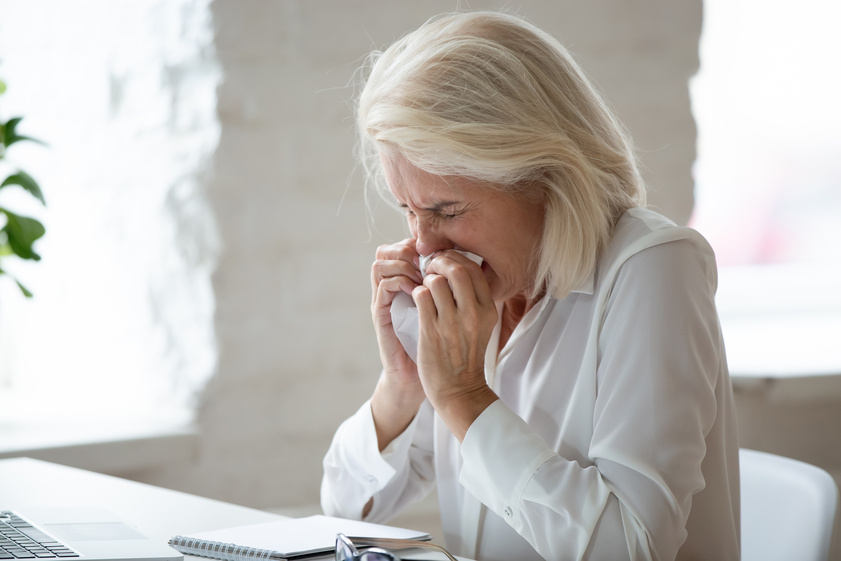For many of us, spring is when we can finally put away our heavy coats and enjoy the warm weather. However, for people with allergies, spring can be a difficult time for them. According to the Centers for Disease Control and Prevention (CDC), allergies are the sixth leading cause of chronic illness in the United States. If you have elderly parents, it’s important to recognize the common spring allergy symptoms. Learn about what causes springtime allergies and find out how you can protect your elderly parents during this season.
What Causes Spring Allergies in Seniors?
When new plants and flowers grow and bloom in spring, it also means that the air is filled with pollen, which is the main trigger of spring allergies. When pollen gets into our bodies, our immune systems will view this allergen as a threat and release antibodies to deal with it. This then leads to the release of histamines that trigger symptoms like sneezing, watery eyes, and wheezing. In some cases, these allergy symptoms can also lead to fatigue or difficulty breathing.
Other factors can also contribute to spring allergies in older adults. As we age, our bodies produce less protein that can help break down allergens. At the same time, our immune systems may also become less effective at fighting off foreign substances. If you or your loved one has been exposed to allergens early in life, your risk of developing allergies later in life will also likely increase. While there is no cure for allergies, there are several ways to manage them.
How Do You Protect Your Loved Ones from Spring Allergies?
If you or your loved ones are one of the many people who suffer from spring allergies, there are a few things you can do to minimize your symptoms. Try to stay indoors as much as possible when pollen levels are high. You can also keep your windows closed and run an air purifier to remove allergens from the air.
When you go outdoors, wear a dust mask or scarf over your mouth and nose to keep pollen out of your lungs. Finally, shower and change clothes as soon as you’re home to remove any pollen that may have gotten onto your skin or clothing. These simple steps can help mitigate the effects of spring allergies.
What Is the Fastest Way to Relieve Spring Allergies?
The best way to prevent spring allergy symptoms is to avoid pollen exposure. However, if you are already suffering from allergies, there are a few things you can do to relieve your symptoms.
Antihistamines can help reduce sneezing, watery eyes and itchiness while decongestants can help clear your sinuses. Nasal sprays can help reduce nasal congestion too. If you suffer from severe allergies, you should also consult with an allergist to discuss possible treatment options. With a little effort, you’ll be able to find relief from your spring allergies and enjoy the warmer weather.
Can You Build Immunity to Spring Allergies?
While there is no cure for spring allergies, there are some things that you can do to build up your immunity and reduce your allergy symptoms. One approach is to take an over-the-counter antihistamine a few weeks before the allergy season begins. This can help reduce the severity of your symptoms once pollen gets into the air. Another option is to go for allergy shots, which can help desensitize your body to the allergens that trigger your symptoms. Although not everyone will respond to these treatments in the same way, it is worth trying one or both if you suffer from seasonal allergies.
Springtime allergies are a common problem but they can be especially dangerous for our elderly parents. If you have any concerns about your parent’s health during allergy season, don’t hesitate to contact their doctor.







